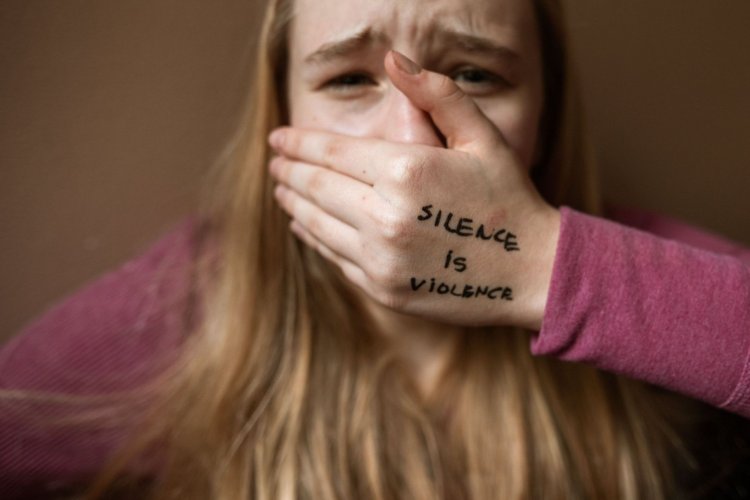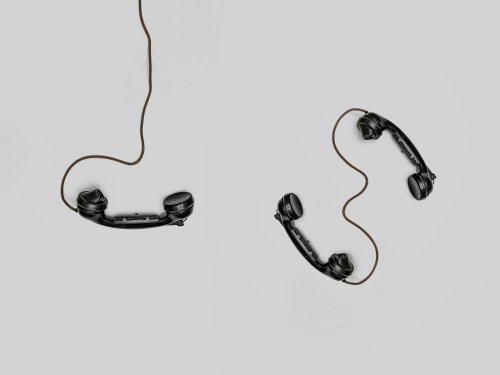Can a Toxic Relationship become Healthy One?
The road to converting a toxic relationship is long and difficult, but it is possible.

Work from both parties can transform a toxic relationship into a healthy one. The key is to accept responsibility for one's actions, work to improve communication, establish healthy boundaries, accept help when needed, and dedicate oneself to both individual and interpersonal development. Couples can restore a troubled and toxic relationship into a healthy one by looking inward and committing to mutually beneficial changes that strengthen their bond.
For some, converting a toxic relationship into a healthy one is part of the complex landscape of relationships that they must navigate. Although it may appear to be an uphill battle, recovery is achievable. This article will discuss the dynamics of toxic relationships, the causes of their toxicity, and the actions that can be taken to improve the relationship and make it better for both parties involved.
Signs of a Toxic Relationship
There are various signs and symptoms that indicate that a relationship is toxic. Some of them are:
- Constant criticism, blame, or judgment
- Controlling or manipulative behavior
- Emotional or physical abuse
- Jealousy or insecurity
- Lack of intimacy or affection
- Passive-aggressive or stonewalling communication
- Resentment or bitterness
- Unresolved conflicts or arguments
If your relationship demonstrates any of these signs, it's time to take stock and figure out what's wrong. If the toxic situation is ignored or denied, it will only get worse and more difficult to resolve.
Understanding Toxic Relationships
When one or both partners engage in damaging emotional, mental, or even physical patterns of interaction, the relationship is considered toxic. Manipulation, control, contempt, a lack of communication, and even physical and emotional abuse are all examples of such patterns. In order to make positive changes in a relationship, it is essential to recognize the warning signals of toxicity.
Causes of Toxic Effects
1. Failure to Communicate
The loss of communication is a major component in many unhealthy partnerships. Misunderstandings, anger that doesn't get expressed, and a lack of emotional connection are all results of a breakdown in communication.
2. Unresolved Issues:
Personal or communal unresolved traumas from the past can fuel toxic interactions. These problems could serve as catalysts for even more strenuous emotional reactions, further testing the bonds of the relationship.
3. Lack of Boundaries:
Relationships that have established and respected limits prosper. The lack of these boundaries is a common feature of toxic relationships, and it can lead to feelings of invasion, contempt, and unease.
Steps to Transform a Toxic Relationship:
1. Self-Reflection:
Each person in the relationship needs to do some serious introspection to figure out how they have contributed to the toxic atmosphere. This requires being honest about your own shortcomings, insecurities, and behavior patterns that could be harmful to the relationship.
2. Open Communication:
In order to effect change, it is necessary to establish channels of open and honest communication. Each partner should be able to freely share their innermost ideas and feelings with the other. A therapist could be consulted for this purpose in order to promote healthy conversation.
3. Setting Boundaries:
Establishing reasonable limits early on is essential to any relationship's success. In order to create a safe and trusting environment, couples should talk about and set limits that take into account each other's requirements.
4. Seeking Professional Help:
In many circumstances, the support of a skilled therapist or counselor is vital in navigating the difficulties of a toxic relationship. Professional direction can offer unbiased viewpoints, dispute resolution strategies, and encouragement for development.
5. Commitment to Change:
Both people in a toxic relationship need to make efforts to improve the dynamic before it can be salvaged. Together, you'll need effort, patience, and a desire to learn and grow to fulfill this pledge.
Steps to Improve a Toxic Relationship
There are ways to strengthen your connection with your mate if you both want to work on it. To name a few:
Set boundaries and respect them.
You establish your boundaries by deciding what you will and will not tolerate in your personal and professional relationships. They aid in keeping your pride, independence, and health intact. Both you and your partner should be clear and respectful about the limits of your relationship. Say you need time to yourself every day, don't want to exchange passwords, or won't stand for being called names or being insulted.
Communicate effectively
Relationship success hinges on open lines of communication. Communicating openly and honestly with your spouse about your emotions, wants, and hopes is essential in any healthy relationship. You should also listen to one another attentively and empathically without making assumptions, passing judgment, or cutting the other person off. When communicating with someone, it's best to utilize "I" phrases like, "I feel hurt when you ignore me" or "I need more support from you" rather than harsh words, sarcasm, or accusations.
Work on yourself
Toxicity in a relationship can be the result of unresolved concerns on both parties' parts. You may be engaging in unhealthy behavior due to low self-esteem, trust issues, trauma, or other mental health issues. If that's the case, you need to get some help fixing the problem and moving on with your life. Taking care of your own physical and mental health, engaging in activities that bring you joy, and treating yourself kindly are all important components of self-care and self-compassion.
When to End a Toxic Relationship
Some toxic relationships are redeemable with time and work, while others are hopeless and must be stopped for the sake of both parties. There are times when it's best to cut ties with a toxic person, and they include:
- When there is severe emotional or psychological abuse
- When there is substance abuse or addiction
- When cheating or betrayal occurs
- When there is no love or respect left
- When there is no hope or willingness to change
Although it may be difficult and even painful, it is sometimes vital to end a toxic relationship in order to protect yourself and go on with your life. Putting yourself first rather than sticking with someone who treats you badly is not a weakness. You deserve to be happy and healthy.
Conclusion
The road to converting a toxic relationship is long and difficult, but it is possible. Couples can start along the road to recovery if both partners are willing to do the work of introspection and communication, set healthy boundaries, get professional therapy, and work together to make changes. It's crucial to go into this process with openness, empathy, and faith that positive change is possible. Those who are prepared to work through the difficulties involved will be rewarded with a stronger and more satisfying relationship.
Share
What's Your Reaction?
 Like
0
Like
0
 Dislike
0
Dislike
0
 Love
0
Love
0
 Funny
0
Funny
0
 Angry
0
Angry
0
 Sad
0
Sad
0
 Wow
0
Wow
0

![6 Harsh Facts About Long Distance Relationships [Not what You Think]](https://lovertree.com/uploads/images/202311/image_750x_6563d60f3b3e7.jpg)













Great findings, thank you it helped me a lot